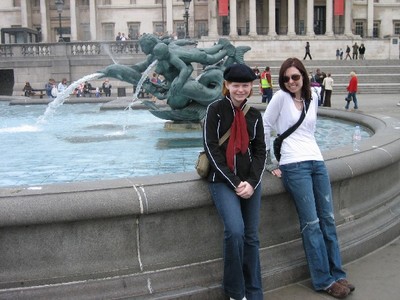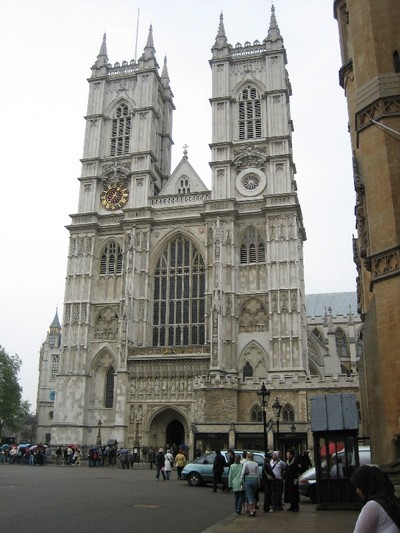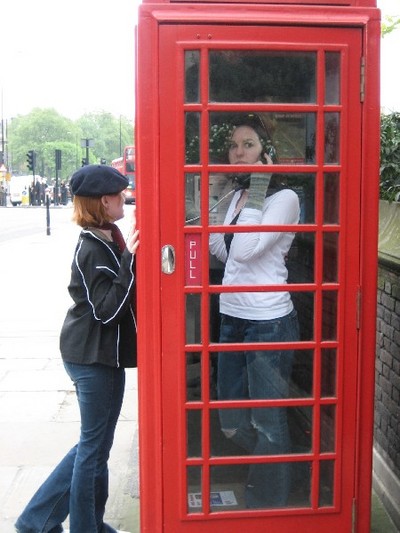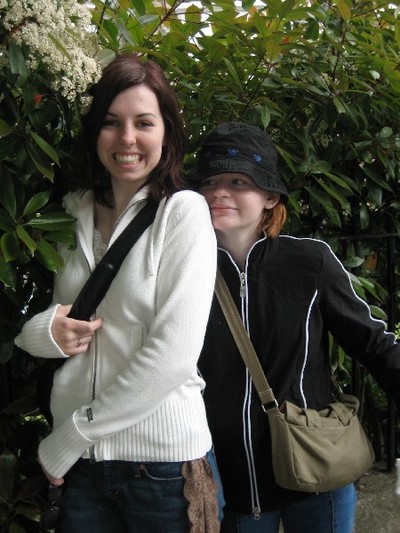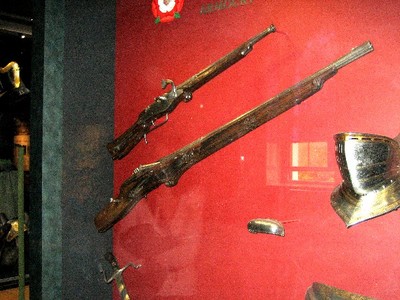The above is a composite of the discussions I’ve had recently as I try to follow up after my ultimately innocuous visit to the ER recently. I’m taking this approach for two reasons.
One is that my wife and I opted for a high deductible health plan through my employer this year because the increase in premiums for our family’s coverage through an HMO was too high. My employer was offering for the first time a plan with lower premiums but with much higher out of pocket costs; the plan is ideally suited to be used in conjunction with a Health Savings Account (HSA), which is similar to an IRA for health costs.
The second reason is that I have more than a passing familiarity with the U.S. healthcare industry as a result of my job and I believe the current third-party payer model, like that found in your employee benefits, is the fundamental reason for the virtually uncontrolled costs of our current environment. The only efficient way to control costs and provide greater access to all consumers is to return to a direct pay of health insurance that puts the individual or family back in charge of determining how the money gets spent – just like they do for everything else that is bought and sold in this country from deodorant to houses. As King or Phil would say, “markets work.”
The approach my wife and opted for is a step in this direction because, in exchange for monthly premiums a couple hundred dollars less than the HMO plan, we’re responsible for the first few thousand dollars or so of our care before the insurance kicks in (a tax-deferred HSA is an important part of this program because this is where you can accumulate and hold the funds to cover your out-of-pocket costs). Theoretically this means I can “shop” for the healthcare that fits my needs and/or budget, just as I might shop for an oil change or new home entertainment system.
The problem is that the U.S. healthcare system is still so indoctrinated into the third-party format that it is hard to bring market forces to bear individually as my vignette above illustrates. It is not presently set up to compete on price, and the suggestion that doctors or clinics might have to do so is greeted by the same slack-jawed incredulity that certain Minnesota judges have expressed now that they actually have to campaign for positions. The world is changing and the healthcare system – and the judges – will learn to adjust.
Some might argue that, as inefficient as our current system might be, it has allowed some very high-tech, life-saving technology to be created and that introducing price competition might diminish this. It seems to me, however, that price competition hasn’t kept the computer industry from leaping ahead with ever-faster, ever-smaller computers and accessories such as iPods, or slowed the development of market-driven, market-demanded goods such as high definition televisions or computer game consoles with more computational power than the Apollo spacecraft.
Switching to a direct-pay health insurance model will be dramatically different than what we’ve become used to over the last 70 years. That doesn’t mean it will be unfamiliar though.
To better illustrate, in an amusing way, how downright stupid and impractical our current model is I highly recommend you read this article from Joseph Bast at the Heartland Institute, entitled “What Hunger Insurance Could Teach Us About Health Insurance.” Here’s an excerpt:
To understand what lies at the heart of the failure of our current health-care financing system, imagine, if you can, what the world would be like if we tried to buy food the same way we buy health-care services.
You could go to work tomorrow morning and hear your boss tell you the following: The company has decided to offer a new benefit: hunger insurance. The company will purchase a hunger insurance policy for you that covers about 95 percent of your food costs whenever you enter a grocery store or restaurant, and a smaller share of the miscellaneous snacks and condiments you purchase from street vendors and the corner drugstore. To pay for the new benefit, the company will withhold some of your pay—about $100 a week or so.
Effect on Consumers
What effect would hunger insurance have on you, a consumer of food? If you’re like me, you will probably start to eat more . . . and eat better, more expensive foods. Why eat hamburger when you can have tenderloin? Why settle for beer when the finest wines cost you just as little? Why eat at McDonald’s when you can eat, for nearly the same price, at Chez Paul?
If there were such a thing as hunger insurance, some of us would stop checking prices before we ordered food, just as we don’t check prices when we ask for medical treatment. Some of us would order fancy and expensive foods that we wouldn’t order if we really had to balance the price against the improved taste . . . just as we order unnecessary and expensive tests to get just a little more peace of mind.
And if there were hunger insurance, some of us would overeat until we were so round and fat that our health was endangered, just as we see millions of people in America asking for and receiving unnecessary surgery and medication that actually endangers their health.
Effect on Providers
What effect would hunger insurance have on the providers of food? Put yourself in the shoes of a grocery store manager. You would start stocking more caviar and less Cheese Whiz, wouldn’t you? Rather than lose customers to fancier (and more expensive) establishments, you would carpet your aisles, hang chandeliers in the lobbies, and have distinguished-looking fellows with white gloves push people’s carts down the aisles!
Every grocery store would offer an impressive array of products, from the very finest meat department to the best stocked liquor counter (providing state law allowed it). That the store next door has the same expensive freezers and wine cellar matters not at all: Cost, you understand, is no object. “Overinvesting in new technology,” you ask? Hey, the insurance company pays for it all! And if we don’t offer it, customers will cross the street and shop there.. You know you would.
What if you were a lousy grocery store manager who just couldn’t keep costs down and quality up? Before hunger insurance came along, you would be forced out of the market by stores managed by sharper people able to cut costs without sacrificing quality. Customers wouldn’t patronize your establishment, and you’d be out of business. But with hunger insurance, you can pass along your higher costs to the insurer, so the customer never knows how inefficient you are! So you get to stay in business despite your inefficiencies. Out of gratitude, you may even spend a little money lobbying to make sure hunger insurance is always available!
If there were such a thing as hunger insurance, the price of food would begin to soar, just as the price of health services has steadily risen faster than the price of other goods and services. Financed by hunger insurance companies, grocers and restaurateurs would sell more food and of a fancier variety than if they faced customers who paid with their own money, just as health-care practitioners today are free to overtreat and overprescribe. Food sellers would over-invest in expensive and under-utilized equipment and pass the cost along to the insurers, just as hospital administrators today buy too many MRIs and CAT scanners and pass along the expense to health insurers. And inefficient, low-quality providers of food would stay in business rather than be forced out by better competitors, just as high-cost providers of health care are tolerated in today’s health-care marketplace.
Effect on Insurers
What would happen to insurers if hunger insurance were provided? The premiums they charged at first were based on past levels of food consumption and prices. As consumption expands and prices rise, insurers have to raise their premiums again and again. The exploding number of insurance claims buries them in paperwork. The businesses that pay the insurance premiums will, of course, be outraged by all this. “Find a way to control these rising costs !” they will demand. “The rising cost of hunger insurance is making us less competitive with businesses in other countries!”
The insurers will hire an army of “managed-eating” experts who will search the grocery bags of the insured for signs of unnecessary products, just as today’s health insurers have hired experts in “managed care” to review health services utilization. People will resent this intrusion into their personal dietary habits, just as they resent the managed care experts second-guessing their health concerns. People with hunger insurance will find ingenious ways to avoid the managed-eating experts, and the eventual results will be higher, not lower spending . . . just as businesses with managed-care programs today are discovering.
Effect on the Uninsured
Some people in our imaginary world will be uninsured: They won’t have hunger insurance because their employers are too small to afford to offer this new benefit, or because they are self- employed or unemployed. Or, in their effort to control costs and make money, some hunger insurers will refuse to cover people who are high food-risks—the hoarders, the people with exceptionally delicate palates, and the bulimics. They will offer cheaper rates to others: beer-drinking football fans, people who can’t smell, and anorexics.
The uninsured will be hurt the most by hunger insurance because they will see the price of food bid up and out of reach by those lucky enough to have hunger insurance. The foods that were once plentiful and inexpensive will now be unavailable or high-priced, just as health insurance has replaced inexpensive general practitioners with expensive specialists, and inexpensive but slow-working therapies with expensive but quick surgical procedures.
Those who lack hunger insurance will be seen standing with their noses pressed to the windows of our beautifully carpeted and chandelier-lit grocery stores and restaurants, just as millions of Americans today crowd the emergency rooms of state-of-the-art hospitals whose beds are between one-third and one-quarter empty.
Effect on Elected Officials
What would happen to our elected officials if hunger insurance existed? Civil rights activists and well-meaning people without much understanding of economics would campaign against for-profit hunger insurers, denouncing them for being heartless in their discrimination against people with eating disorders. They would condemn them for profiting from the provision of something so fundamental to human life as food. “Food is a right, not a privilege,” they would say. “The high administrative costs of the hunger insurers are what is causing the problem. We should abolish private hunger insurance companies and replace them with a single provider of food.”
And since experience will have so convincingly shown that the current hunger insurance system is inefficient and unjust, our enlightened elected officials would eventually yield to the public’s demands and pass “play or pay,” forcing businesses to buy hunger insurance for all their employees, or “national hunger insurance,” where government acts as the single payer of all hunger insurance claims.
The nation will face a difficult choice: Either abandon the idea that all food should be paid for by hunger insurance, or impose draconian rationing measures, price controls, and restrictions on new investments in food processing and delivery technologies. If we can judge by what is happening today in the health-care arena, the advocates of rationing will dominate the debate.
Commissions will spring up everywhere to determine whether a carrot is more valuable to the community’s welfare than a grape, and a grape more valuable than a banana; just as commissions are being created at this very moment to decide whether capping 1,000 teeth is “worth more” than extending a person’s life for one week by kidney dialysis. The issue will be addressed as if justice and virtue, rather than economics and incentives, were at the heart of the issue.

